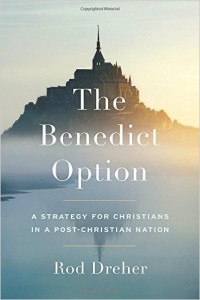At The Federalist, Luma Simms reports from experience on how TBO-ish communities have a strong tendency to become snakepits of self-righteous pride and envy:
Many of the families who come together to form these communities believe they are being obedient to God or purer in faith. But what begins as a good desire turns into a measuring rod. Families begin comparing themselves to one another and to those outside the community. Who can be more rigorous, and hence more faithful? Soon these judgments begin to build a wall that insulates those inside the community from the world outside. One sees a rise in authoritarian behavior, paranoia, and an insular mindset. It even distanced families in the community from kin who were not.
Those joining must soon be able to show they can check off the righteousness boxes. Sure, anyone can repent and believe the gospel, but can you live without both cable and Netflix? Can you homeschool your eight kids, including the 10-year-old special-needs son, without institutional involvement? Can you all show up twice a week to choir practice?
Can you derive an income for your household without taint from large immoral corporations or (gasp) government employment? Can you source at least half your family’s food from your own garden, pasture, and henhouse? Because the Smiths can. And the Joneses. And the Johnsons. And they are righteous. Not sure if you are. Welcome to the community.
This process diminishes the gospel, reducing it to a set of propositions one assents to, but what rises to primary importance is the list of distinctives. [e.a.]
This is not an isolated data point. This is the whole point of Pentecost. The gospel is no longer to be expressed in a distinct people-group; it is to be expressed by Christians living out the holy love of the gospel in their daily lives within the unholy nations of the unholy world.
One of the points I made in my response to The Benedict Option (but not The Benedict Option) was: “To be human is to be part of a nation, and when believers try to withdraw into ‘Christian villages’ they only reproduce in miniature the dysfunctions of their nations—because that is who they are.”

Pingback: Formed by Forming – Hang Together